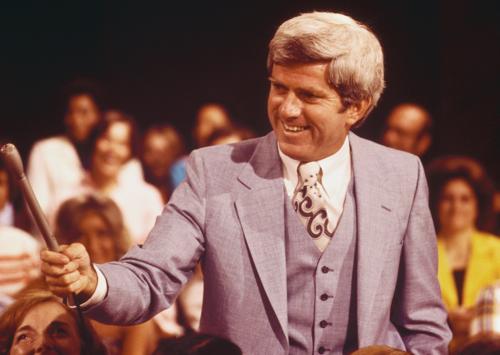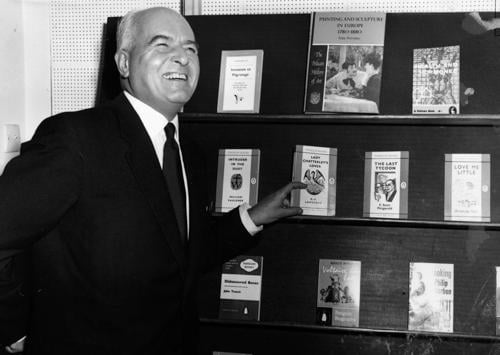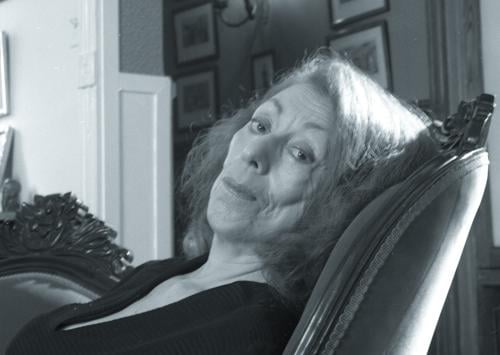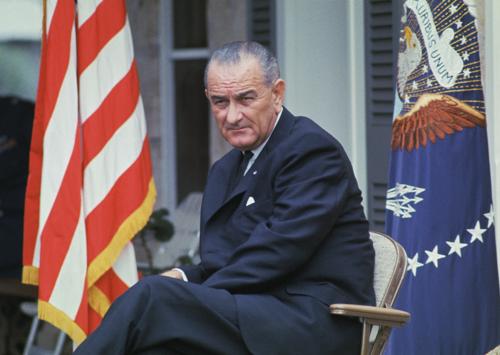Listen to New Voices on Studs Terkel our partnership with 826CHI-here! Read the Story
Showing 1 - 15 of 15 results
-
Studs, teachers and students have a conversation at a high school where there is controversy over the use of the book "Working"
1982 Discussing the controversy over the use of the book "Working" by author Studs Terkel in a senior vocational class. Interviews with Kay Nichols, teacher, and two high school classes, as well as Bob Burns and Jim Richardson. The students talk of how the "bad" language in the book is heard from their peers on a daily basis and they don't find it offensive. [recorded in Girard, Pennsylvania]
-
Studs Terkel discusses television and advertising with Nicholas Johnson of the FCC
Apr. 3, 1970 Johnson had recently released a book, "How to Talk Back to Your Television Set". Topics of conversation include the history and role of advertising in television and radio programming, and how advertising revenue influences the media. Emphasis is placed on cigarette advertising, which was particularly prevalent and controversial at the time of this interview.
-
Studs Terkel discusses commercial and public broadcasting Nicholas Johnson of the FCC
Apr. 1, 1971 Studs Terkel discusses television and advertising with Nicholas Johnson, Commissioner at the Federal Communications Commission. Johnson had recently delivered a speech in Dubuque, IA about possibilities for the future of broadcasting, and had released a book a year prior, "How to Talk Back to Your Television Set". Topics of conversation include censorship, the role of advertising and corporate sponsorship of radio and television, and the hope and promise of public television.
-
Phil Donahue talks about his book "Donahue: My Own Story"
Feb. 1, 1980 Mr. Donahue talks about the audience and the guests of his talk show, and the changes that have come for the groups he talked with (women, homosexual persons, minorities, political freedoms).
-
Nora Sayre discusses her book Running Time: Films of the Cold War
May. 4, 1982 Nora Sayre discusses her book "Running time: Films of the Cold War" and how Russian-American relations affected Hollywood and celebrity blacklists.
-
Nicholas Johnson talks about communication and its impact
Jan. 16, 1981 Interviewing Nicholas Johnson, a former member of FCC in which discusses communication, advanced technology, the role of the public, censorship and control of information
-
Judy Blume discusses her career as an author
Judy Blume, author, discusses her books and work in children literature. She talks about her books "Are You There God? It's Me, Margaret," "Forever..." "Iggie's House," "Deenie," "Tiger Eyes," and the censorship argument around her works. Blume also explains her beliefs on children's rights to choose what they want to read.
-
Interview with Sir Allen Lane
1962 Studs discusses books with Sir Allen Lane and labor with his driver, Clifford Bosley, while Studs was visiting the UK in 1962. The main topic of conversation with Sir Allen Lane is the history of paperback books in both the UK and the US. Lane, along with his brothers Richard and John Lane, founded Penguin Books in 1935. This made both fiction and nonfiction literature widely available to the general public. Literacy amongst the masses is discussed, as is censorship. Studs' interview with Clifford Bosley begins at 32:33.
-
Hortense Calisher discusses her book "Queenie: A Novel"
May. 13, 1971 Hortense Calisher discusses and reads excerpts from “Queenie: A Novel,” a coming-of-age story about Queenie, a teenage girl raised an unorthodox household. Terkel and Calisher discuss reoccurring themes like the relationship between sex and property and the preservation of beauty as one ages. Calisher comments on her unique writing style, and Terkel praises her writing, calling it elegant and euphemistic. The two dance around certain topics and language deemed inappropriate for public broadcast, bringing up the issue of censorship.
-
Hendaseyd Buchanan and Miss Dillon discuss life in London, England and Scotland, bookshops, and book selling; part 1
1962 Interviewing booksellers Hendaseyd Buchanan and Miss Dillon while Studs was in England. They discuss life in London, England and Scotland, their bookshops, and book selling.
-
Eric Goldman discusses his experiences as special consultant to President Lyndon Johnson
1967 Historian Eric Goldman discusses his time as special consultant for President Lyndon B. Johnson and his book "The Tragedy of Lyndon Johnson."
-
Daniel Schorr discusses his memoir "Clearing the Air"
Nov. 18, 1977 Daniel Schorr discusses his work in television and print journalism and the limitations of each. Topics of discussion include Schorr’s experiences working for CBS, reporting on and from the Soviet Union, and censorship in the news media. Schorr reads excerpts from his memoir at the beginning and end of the program.
-
Candy Armstrong-Jones discusses her book "City of Sin"
1970 Studs Terkel plays Wagner’s “Liebestod” to introduce his guest, author Candy Armstrong-Jones. The two discuss her second book, “City of Sin,” a romance about a couple who work at a Chicago newspaper. Despite negative reviews for being pornographic, Armstrong Jones says she is celebrity now, which makes her “swinging” complicated. She asks Terkel if he ever swings several times, to which Terkel replies that he is married.
-
Andreas, Margaret, and George Papandreou discuss the 1967 Greek coup d'at
Apr. 1, 1968 Studs Terkel joins the Papandreou family in their living room in Elmhurst, Illinois, to discuss their exile after the Junta’s coup d’état and occupation of Greece.










